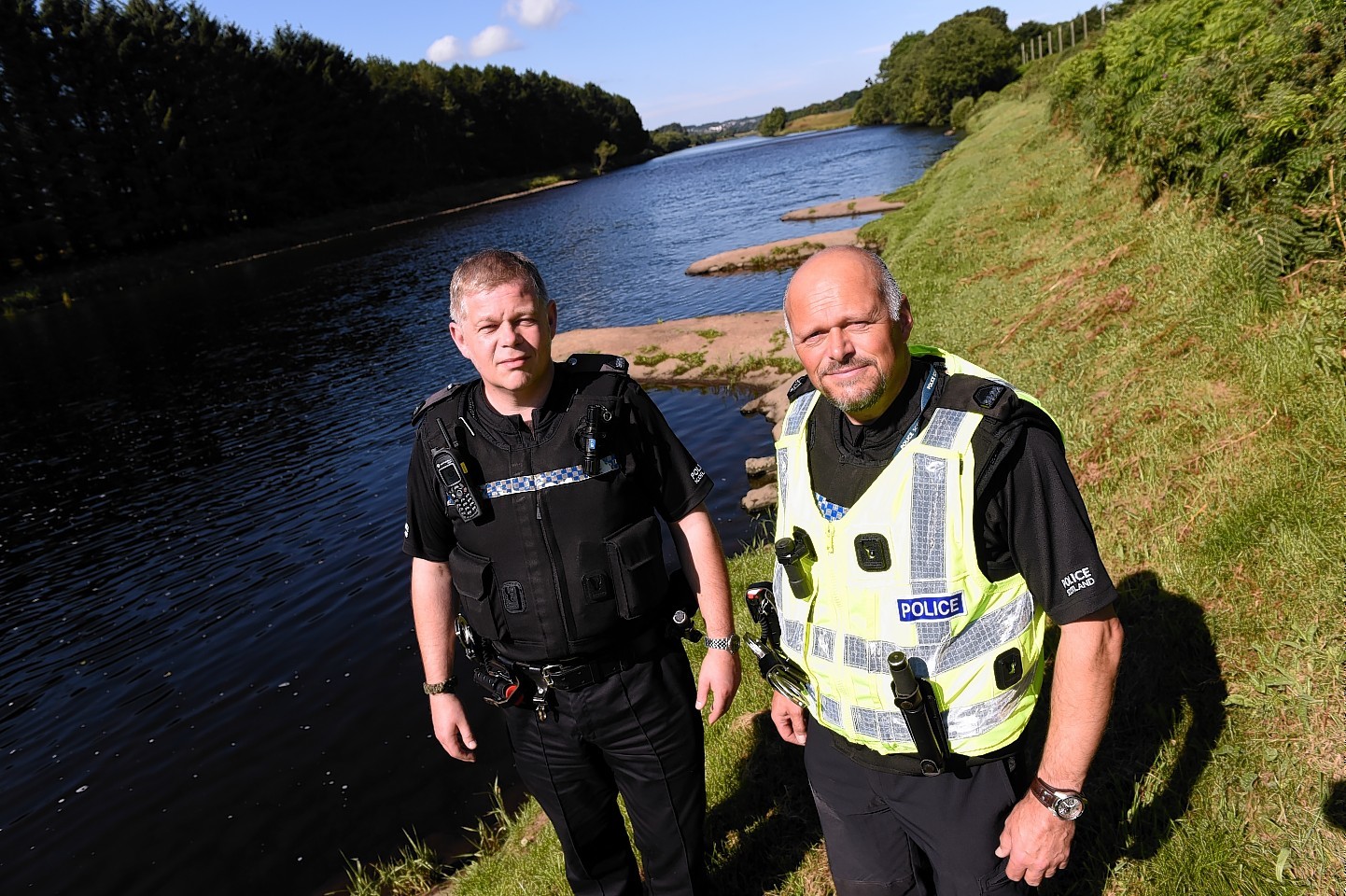Wildlife crime is a top priority for police in the north-east. On the third day of our series, Shona Gossip finds out how officers are tackling poaching on the rivers.
They walk along the banks of the River Dee with their heads down, looking for clues among the pebbles.
Suddenly, Constable Mike Whyte stops and crouches down, before waving something in the air.
As he and fellow wildlife officer Constable Steve Lafferty make their way back towards the ghillies hut, they find more of the dark shells that once protected the fresh water pearl mussels hunted by poachers.
Although today’s haul is not significant, there are marks on the shells that indicate a few may have been prised open – perhaps by someone after the pearls inside.
Coupled with a knife found by the riverside by a local angler, Constable Whyte believes it is “indicative” that poachers may have tried their luck at the well-known fishing spot.
He will later get in touch with the river bailiffs and boards, as well as the landowner to alert them – and to encourage them to remain vigilant.
It is just one of the estates between Crathes and Potarch visited on the patrol, giving the two officers the chance to check-in with the ghillies they often rely on to protect the north-east’s rivers from those who are plundering the salmon and fresh water pearl mussel stocks.
Constable Lafferty said: “If things are happening, these are the guys that hear about it.
“Without the good relationships we have with the river boards and bailiffs, we would not be able to put on targeted, effective patrols at all.
“We do heavily rely on the intelligence coming in from all sources – from the milkman and the postman to all the other people who know the lay of the land intimately – to let us know if they’re seeing something that’s not in their normal day-to-day realm.”
Officers carry out joint patrols with the river bailiffs if they suspect poachers may be in the area from information gathered from various intelligence sources – such as the automatic number plate registration (ANPR) cameras on the A90 Aberdeen to Dundee road.
Information is being gathered about one particular organised gang, who keep returning to the Deeside area to net salmon. Different from the rod and line poachers, these people put a net right across the river before making off with huge catches of the fish.
Constable Whyte, who is Aberdeenshire and Moray division’s only full-time wildlife officer, said: “We’ve got a well-known gang that targets the rivers up here. We know where they are from and we’ve things like ANPR checks in place. If there’s intelligence that gives us an idea they are in the area, we can use that to our advantage.
“We heavily rely on the work with the river bailiffs and various boards to give us the heads up when they think they are likely to be hit by the netting gangs. As soon as we know they are in the area, we can react and start patrols to catch these guys.”
Constable Lafferty added: “They wouldn’t keep coming back if they were not getting a significant amount of fish. It will be enough to have a significant effect on the stocks of fish, so we’ll try anything to stop them.”
Although police are keen to stamp out such activities, the officers stressed it was not a growing problem – and said sometimes, rod and line poachers were actually just ignorant of the laws around fishing.
As for fresh water pearl mussels, the team is being hyper vigilant as work to remove croys from the River Dee is due to start soon. The project needed a licence from Scottish Natural Heritage, and officers fear the process may have given away the whereabouts of the endangered molluscs.
Officers tasked with protecting the north-east’s rivers also handle inquiries about raptor persecution, hare coursing and deer poaching, and find there can be an overlap with offenders.
Constable Whyte said: “There’s a close link with river crime, a lot of the guys involved in salmon poaching are involved in other rural crimes such as hare coursing and deer poaching.
“The public takes a real interest in raptor persecution, and there’s far more birds of prey incidents being reported to us. A lot of the time there’s nothing to suggest suspicious circumstances, but people are far more concerned about it.
“Again we rely on the ghillies and landowners.
“That’s the problem with wildlife crime, it happens in remote areas so we need people to help us.”
